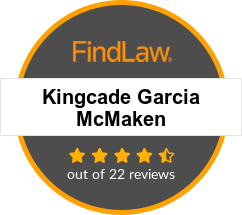Reducing Tax Debt through Bankruptcy
Dealing with high interest credit cards, medical bills or late car payments may be stressful enough, but dealing with the IRS can create a new level of financial turmoil. The law allows the IRS to place levies on personal property in order to collect taxes. This allows it to seize real property and vehicles, and even take money out of your bank account. Fortunately, a bankruptcy can help you avoid the loss of your property and money. Just as it allows the discharge of unsecured debt, bankruptcy can be used to discharge federal tax debt as well.
Federal income taxes may be discharged in a Chapter 7 bankruptcy if the debtor meets all of the following conditions:
- Income taxes are sought to be discharged: Only personal income taxes may be discharged through bankruptcy. Business payroll taxes and penalties for tax fraud may not be discharged.
- The debtor did not commit willful tax evasion or tax fraud: If a debtor was penalized for repeatedly failing to pay taxes, hiding money or taxable assets from the IRS, or filing a blank or incomplete tax return; these charges may not be eliminated through bankruptcy. The same applies to charges levied due to tax fraud.
- The 240-day rule applies: The tax debt must have been assessed at least 240 days before the bankruptcy petition is filed.
- The taxes stem from a legitimate tax return: The debtor filed a tax return for the relevant tax years at least two years before filing for bankruptcy.
- The past tax debt is at least three years old: The tax debt was originally due at least three years before filing for bankruptcy.
In a Chapter 13 bankruptcy, a debtor will make payments on tax debt through a repayment plan. Such plans last between 36 and 60 months, and the payments are based on the debtor’s disposable income. After the plan is completed, the remaining debts are discharged.
The same dischargeability requirements apply for Chapter 13 plans. Only income taxes from legitimate returns that have been assessed at least 240 days before the petition was filed may be discharged. However, Chapter 13 can be used to pay non-dischargeable tax debts (i.e. unpaid payroll taxes, tax penalties) over time.
The preceding is not intended to be legal advice. If you have questions regarding discharging tax debt, an experienced bankruptcy attorney or tax attorney can advise you on the options available.
















